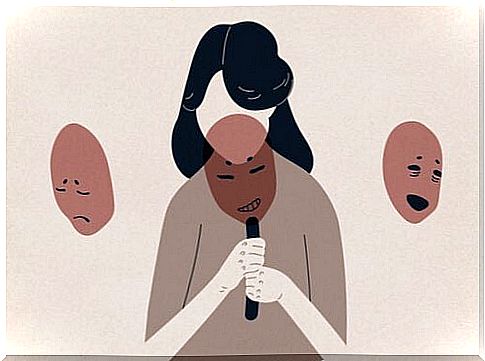6 Toxic Attitudes That Repel Others

Being physically distant is not the only way to distance yourself from those we love. Sometimes we can have them right next to us and still feel as if they were not there at all. In relationships, it is not just physical proximity that makes our togetherness grow. It also grows when we let others share our affection, our actions and intentions. That is why it is so important to try to avoid attitudes that repel other people rather than bring them closer.
One must also keep in mind that this type of psychological distance can be due to many different problems and obstacles, whether they arise from you or others. Therefore, you do best in controlling yourself. By observing yourself, you get very valuable information. In the end, it does not matter why these situations arise; they are painful no matter the circumstances. Let’s take a deeper look at what’s going on.
away others?
Because humans are social beings, it is usually psychological problems that can keep us away from other people. If a person constantly avoids associating with others, this may be because the person in question has a problem that we are not aware of. Clinically, it may be a underlying depression, and in such cases, professional help may be required.
Furthermore, there are attitudes that repel other people, but that have more to do with psychological characteristics. It may not be about disorders or illnesses, but these attitudes can still damage your relationships with other people. Here we will take a look at some of these attitudes.

Selfishness
The Swedish Academy’s dictionary defines selfish : “who too much looks to their own advantages”. Selfish individuals do not care about other people’s interests or desires, which always seem less important to them.
This kind of individual does not think about other people’s problems; they do not pretend about them. It is difficult to discuss problems with selfish people, because they refuse to acknowledge that they may be responsible for any inconvenience. On the contrary, they often try to find fault with the person who addresses their concerns with them. This almost always leads to a separation, both physical and emotional.
Abuse
The toxic attitude of the perpetrator is directly reflected in the person being abused. By abuse is meant “to treat with cruelty or violence, especially in a regular or repeated manner”. In cases of assault, the victim is forced to process extremely negative psychological experiences, while the perpetrator avoids taking responsibility for what happened. The perpetrator also pushes the abused away in a psychological way. The perpetrator does not care about the victim’s feelings, but sees his victim as a useless object.
But this is a very special situation. Even if the perpetrator repulses his victim with his behavior and attitude, there is still a hidden form of manipulation that means that it usually does not lead to an actual divorce. In other words, this kind of relationship is far from a devoted, loving or healthy relationship between two individuals.
Contempt
Contempt is in direct correlation with abuse and can take many forms. For example, excessively sarcastic humor can hide a desire to hurt another human being. It often expresses a (intellectual) feeling of superiority in the person who harbors contempt.
A common synonym for contempt is “condescension”, which is telling. It is a type of contempt which means that you sit over someone else. Therefore, this is one of the attitudes that repel others. Treating people superiorly is simply a form of rejection.
Lies
Of the attitudes that repel others, the tendency to lie is particularly common. Lies can seem harmless at first. To lie is to hide the truth or to fabricate. It’s like hiding behind a mask.
But how can you trust someone who is lying? How can you expect someone to believe you if you lie? It seems obvious that lies repel people. It’s like boycotting the truth, and the result is that your relationships take a turn for the worse. When you lie, others are not allowed to see who you are.

Sacrifice thinking
Adopting this attitude can be extremely detrimental to your relationships. This is not just because you downplay the importance of being a victim, so that real victims become less credible. In addition, you force others to take on unnecessary guilt.
Victim thinking is a type of self-deception. It shows that you do not have the ability to control and take control of your emotions. People with this attitude get into the habit of complaining and criticizing others in order to survive. They blame others for being unhappy or experiencing negative moods.
Manipulation
Manipulation is reminiscent of contempt and abuse, and is the result of a sense of intellectual superiority. Manipulative people try to change other people’s attitudes for their own gain. Because they perceive themselves as intellectually superior, they proceed carelessly to the work with their plans. But if people around them realize what they are doing, they are quickly rejected.
As you can see, attitudes that repel others are detrimental to all good relationships. Therefore, it is important to learn to identify them. This way, you can build healthy and productive relationships with other people.









